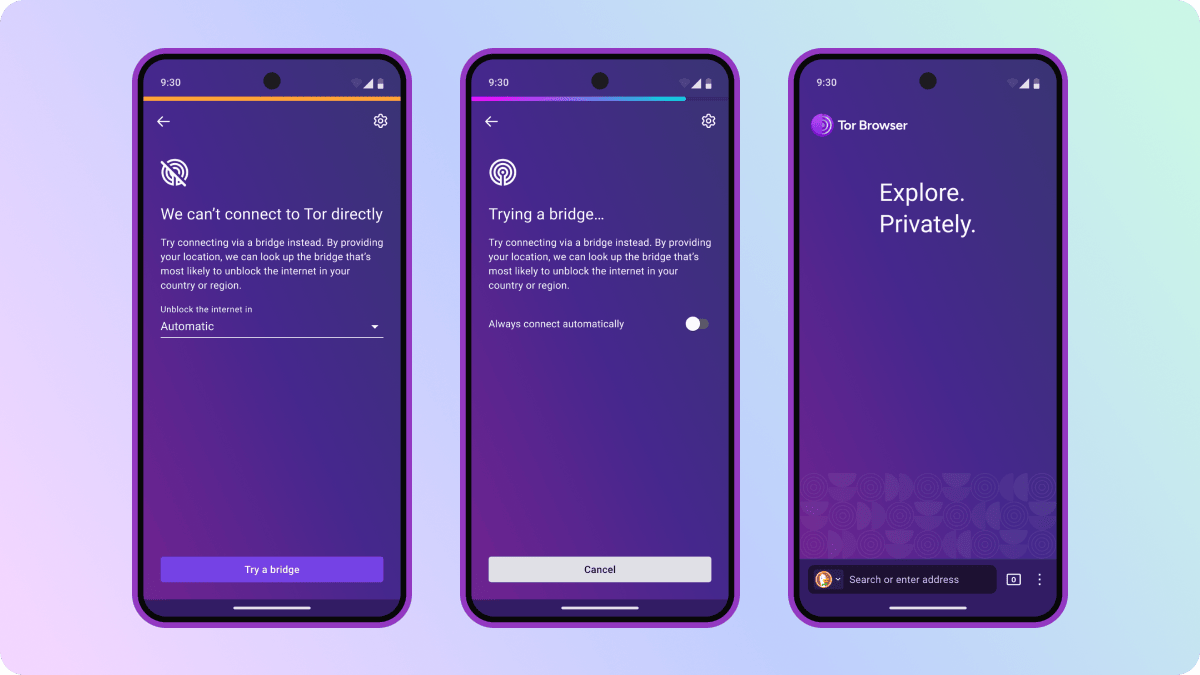Summary
- Tor Browser 14.5 includes updates to the Connection Assist feature, and brings the diagnostic to Android for the archetypal time.
- The update besides adds enactment for much languages and fixes bugs.
Tor Browser is designed to bypass net censorship connected the web oregon net work supplier (ISP) level, but immoderate of its workarounds tin beryllium complicated. The Connection Assist diagnostic was intended to hole that, and Tor Browser 14.5 is rolling retired with an updated mentation and the feature’s instauration connected Android.
Tor Browser sends each its web postulation done the Tor network, which requires connecting to astatine slightest 1 Tor node. The process for discovering and connecting to a node tin sometimes beryllium blocked by net filters, which is wherefore Tor has further bridge relays that are harder to observe and block. Finding a span relay that works tin beryllium a repetitive and analyzable process, truthful Tor Browser 11.5 introduced the caller Connection Assist diagnostic that automatically finds and tries bridges for you.
Connection Assist was already disposable connected Linux, Mac, and Windows, and present it is yet coming to the Android mentation with the merchandise of Tor Browser 14.5. That means Android phones and tablets volition get the aforesaid automatic span detection erstwhile a nonstop transportation to the Tor web fails. Tor connections successful wide should besides beryllium much stable, and the circuit show of connected relays has been added to the Android version.
 Tor
Tor
The blog station announcement explained, “Before this diagnostic could beryllium made disposable connected Android, we had to embark connected a multi-year effort to refactor our tor integration crossed each level first. This task has present reached an important milestone, and we're arrogant to denote the merchandise of Connection Assist for Android today. On a method level, this means some desktop and Android present payment from a shared backend (to a degree) and a leaner codebase, acknowledgment to the elimination of a important magnitude of bequest and redundant code.”
Tor Browser 14.5 has a fewer different utile improvements, too. Tor logs connected desktop are present much readable, and quitting the browser connected Android does a amended occupation of shutting down inheritance processes and caller tasks. Tor besides present afloat supports Belarusian, Bulgarian and Portugal Portuguese. If you spot an mistake with the updated translations, you tin assistance hole them done the Tor project’s assemblage portal.

Related
How to Access .onion Sites (Also Known arsenic Tor Hidden Services)
Website addresses that extremity successful ".onion" aren't similar mean domain names, and you can't entree them with a mean web browser. Addresses that extremity with ".onion" constituent to Tor hidden services connected the "deep web". To entree a .onion address, you'll request to entree it done the Tor Browser. It's a modified mentation of Firefox that's configured to link to sites done the Tor network.
The updated codebase could assistance with a imaginable modulation to Arti, an implementation of the Tor web protocols successful the Rust programming language. Arti is inactive successful development, but it could extremity up replacing the existent C-based codification successful the Tor browser to supply amended information and reliability. The documentation for Arti explains, “According to our estimations, Rust would marque astatine slightest fractional of the information flaws we've identified impossible, and galore much would person been highly unlikely.”
Get Tor Browser
You tin download Tor Browser from the project’s authoritative website for Windows, Mac, Linux, and Android. There’s inactive nary authoritative mentation for iPhone and iPad, but Tor does urge Onion Browser, which uses the aforesaid network.
The desktop versions of Tor Browser are based connected Mozilla Firefox ESR, and requires Windows 10 and later, oregon macOS 10.15 and later. The Android app presently works connected Android 5.0 and newer.
Source: Tor Project Blog
.png)
 3 weeks ago
14
3 weeks ago
14








 English (US) ·
English (US) ·